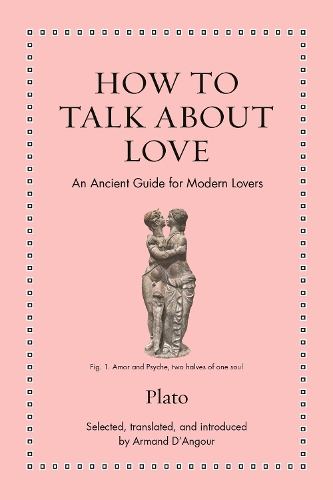
How to Talk about Love: An Ancient Guide for Modern Lovers
(Hardback)
Publishing Details
How to Talk about Love: An Ancient Guide for Modern Lovers
By (Author) Plato
Edited and translated by Armand D'Angour
Princeton University Press
Princeton University Press
1st June 2025
United States
Classifications
General
Non Fiction
Social and political philosophy
Self-help, personal development and practical advice
Ethics and moral philosophy
180
Physical Properties
Hardback
208
Width 114mm, Height 171mm
Description
Explore the nature of love in this charming new translation of selections from Plato's great dramatic work, the Symposium
What is love In poetry, songs, fiction, movies, psychology, and philosophy, love has been described, admired, lamented, and dissected in endless ways. Is love based on physical attraction Does it bring out our better selves How does it relate to sex Is love divine Plato's Symposium is one of the oldest, most influential, and most profound explorations of such questions-it is even the source of the idea of "Platonic love." How to Talk about Love introduces and presents the key passages and central ideas of Plato's philosophical dialogue in a lively and highly readable new translation, which also features the original Greek on facing pages.
The Symposium is set at a fictional drinking party during which prominent Athenians engage in a friendly competition by delivering improvised speeches in praise of Eros, the Greek god of love and sex. The aristocrat Phaedrus, the legal expert Pausanias, the physician Eryximachus, the comic playwright Aristophanes, and the tragic poet Agathon-each by turn celebrates different aspects of love before Socrates proposes not to praise love but to tell the truth about it. In the final speech, the politician and libertine Alcibiades argues that Socrates himself is the epitome of love.
Deftly capturing the essence and spirit of Plato's masterpiece, How to Talk about Love makes the Symposium more accessible and enjoyable than ever before.
Author Bio
Armand D'Angour is professor of classics at Jesus College, University of Oxford. He is the author of How to Innovate: An Ancient Guide to Creative Thinking (Princeton), Socrates in Love, and The Greeks and the New.
